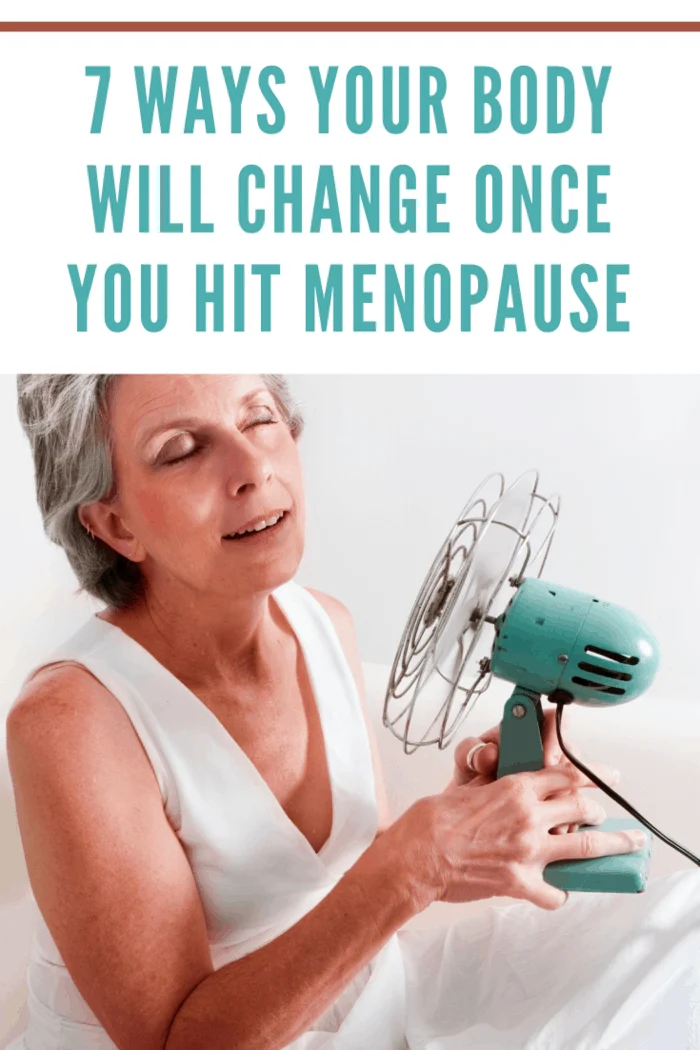Most women think they know what will happen to their bodies when they hit menopause. Considered to be taboo in some regions, women need to understand how menopause eventually occurs. Small lifestyle changes can make the process easier.
Most women hit menopause around their 50s when menopause treatment can usually begin. Read on to see seven ways your body will change once you hit that vital time.

Hot Flashes Will Eventually Stop
Menopause is the time when your hormones will start to settle down.
This might take as long as eight years, and they might get worse before they get better.
But it will eventually happen.
Estrogen levels will fluctuate until there’s a complete lack.
The symptoms will then become more noticeable.
Your Breasts May Look Different
During menopause, breasts may shrink, lose firmness, change shape, and become more prone to lumps and bumps.
This is due to weight fluctuation during menopause, meaning breasts will lose some of their elasticity.
There is no reason for you to be worried.
Consult a doctor to guide you properly for a bra fitting, future fluctuations, and what else to expect.
Weight Distribution Will Change
Throughout menopause, fat is less likely to settle on hips and thighs and more likely to gather on the waistline.
It is thought that this is due to the body’s attempt to hoard estrogen stored in the fat cells in the belly area. (Medical News Today)
Unfortunately, scientists have learned that fat accumulation in this area is known to be associated with the development of heart disease, diabetes, stroke, and even different types of cancers.
Sex May Become Uncomfortable and Even Painful
The skin of the vulva and vagina tends to become thinner and less elastic during menopause.
This can make sex uncomfortable and even painful. The body also tends to produce less lubricating fluid, which also contributes to making sex more painful.
Further, 20 to 30 percent of menopausal women report experiencing vaginal bleeding.
This might not be the case for all women, but you can try external lubricants to help make intercourse less painful.
Laughing Might Cause You to Pee
Estrogen causes the bladder, urethra, and pelvic muscles to stay in good working order, which makes a loss of bladder control a common problem for menopausal women.
This happens because the estrogen levels are low.
Keep those Kegel exercises going, ladies. (Mayo Clinic)
Loss of Bone Density
During and post-menopause, your bones lose density.
Most women lose up to 20 percent of their bone density for up to the first five to seven years of menopause and after.
This puts women at a greater risk of developing osteoporosis and, as a result, fractures. (Health Prep)
The good news is that by engaging in a strength training program and consuming plenty of calcium-rich foods and tablets, this problem can be slowed down or even reversed.
Your Blood Pressure May Rise
Several studies have shown that estrogen helps to keep blood vessels flexible.
Unfortunately, as menopause sets in, estrogen hits rock bottom and causes less flexibility in those blood vessels, resulting in high blood pressure.
Further, as blood pressure increases, so does the level of LDL “bad” cholesterol in your blood, which causes your risk of stroke and heart disease to increase.
These factors increase the risk of having a heart attack rises for about 10 once menopause begins.
This risk can be reduced by exercising regularly, limiting sugar intake and red meat, and increasing your intake of vegetables, fruit, whole grains, and low-fat dairy products.
Whatever menopausal symptoms you might be experiencing, there are always ways to deal with them to keep you healthy and active throughout menopause and beyond.
